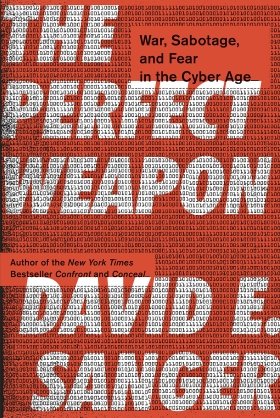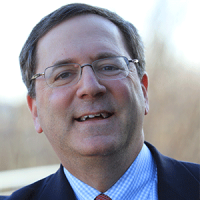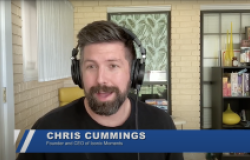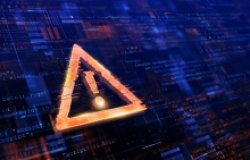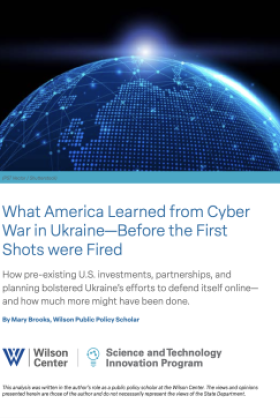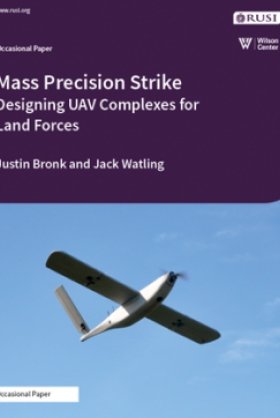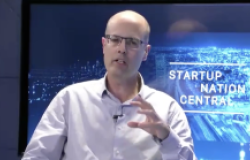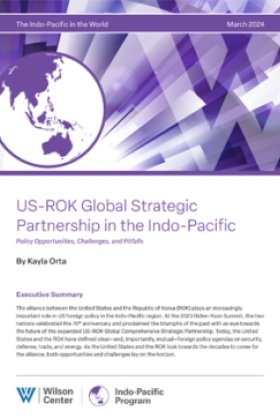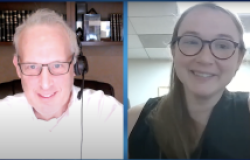Overview
The Wilson Center's Science and Technology Innovation Program hosted a special preview event and discussion, featuring David E. Sanger, national security correspondent for the New York Times and author of The Perfect Weapon: War, Sabotage and Fear in the Cyber Age. On October 16, HBO will release a new documentary based on this bestseller on cybersecurity, which was written at the Wilson Center while Sanger served as a Distinguished Fellow. Variety writes: "As fear mounts about potential cyber-attacks on the 2020 elections, the film will feature exclusive interviews with top military and intelligence officials, as well as new on-the-ground reporting from the frontlines of the cyber wars."
In this fireside chat with CEO and President of the Wilson Center, Jane Harman, viewers previewed clips from the new documentary and heard directly from Sanger the rich story behind the rise of an enduring nation state cyber competition that cannot be solved by governments alone.
Questions about this event can be directed to the Science and Technology Program through email at stip@wilsoncenter.org or Twitter @WilsonSTIP using hashtag #ThePerfectWeapon
Speaker Quotes
Jane Harman, President and CEO, The Wilson Center
“I want to stick on this issue of deterrence. You've made a point that was also made by another brilliant Wilson scholar named Ben Buchanan that in order to play defense, you first have to play offense. You have to be in their networks in order to understand what they're doing to you and then to understand what you can do back… If we're in their network trying to figure out what they're doing to us to defend ourselves, they think we're attacking and so that's a real thing, too.”
“I just would observe…that we are still focused on legacy systems and conventional war when the new real war is exactly what you're talking about… I am saying that the right answer for winning the next war -- or deterring the next war -- is to think about the role technology plays.”
David Sanger, Former Distinguished Fellow, National Security Correspondent and Senior Writer at The New York Times
“In the new thinking of the U.S. Cyber Command and the NSA (thinking this happened under the Trump administration), the concept now is: you don't wait to be attacked; you go into adversary networks and you work on these things before you get attacked because after you get attacked is too late.”
“There are two kinds of hacks that we are trying to protect against, each of which requires very different strategies. One of them is the hacking of infrastructure (our voting infrastructure three weeks from now) and the second is the hacking of minds (and that’s what you saw happen with the Facebook accounts). The hacking of infrastructure is about protecting the voting machines [...]. The second is the hacking of minds and that is what we saw the Russians did with Facebook. They are not going to use the same playbook again because Facebook will see them coming and is taking stuff down [...]. They are not sending out as many of these fake personas, but they are amplifying messages that they are hearing and putting them into the minds of real Americans with real first amendment rights and getting them to go amplify.”
“I think that the problem with our cyber policy so far is that we have wrapped so much of it in secrecy, that we've actually allowed a lot of this to flourish. By our failure to announce with great specificity what we can detect and how we will respond I think has actually stepped on deterrent effect.”
“Now, let's say that we won the arc and that Mike Pompeo was completely successful and got every one of the European allies to reject a Huawei system… Even then, the Chinese would have about 40 percent or more of the world's networks under their control. So, we can't live in the fantasy that by cutting off Huawei and blocking TikTok, we are somehow going to stop the Chinese from having a good part of this infrastructure. What we need to think about is what are the dangers of having a splintered Internet -- a sort of techno-democratic internet and a techno-authoritarian internet.”
“The hopeful news is that we’re all braced for a perception hack. A perception hack means you don't have to hack into every registration system in Wisconsin or Minnesota or Pennsylvania or whatever battleground state you have in mind here. You just have to get into a few of them and create enough chaos. Now, the Iowa case and the Iowa caucuses didn't involve the Russians hacking into anything. We actually managed to mess that up all by ourselves by putting in some new software to put the caucuses together that people rushed together, didn't test out, and the test became Caucus Day. That's a really bad moment to be basically test-flying a new system and we saw the dangers… The trick for me and my colleagues in the media is going to be to figure out what a perception hack is -- what’s just an innocent mistake, what's a bureaucratic snafu, what's the Russians meddling in a couple of places but not enough to make a difference, and then how to go deal with the inevitable conspiracy charges that will come out?”
Speakers
Hosted By

Science and Technology Innovation Program
The Science and Technology Innovation Program (STIP) serves as the bridge between technologists, policymakers, industry, and global stakeholders. Read more

Digital Futures Project
Less and less of life, war and business takes place offline. More and more, policy is transacted in a space poorly understood by traditional legal and political authorities. The Digital Futures Project is a map to constraints and opportunities generated by the innovations around the corner - a resource for policymakers navigating a world they didn’t build. Read more
Thank you for your interest in this event. Please send any feedback or questions to our Events staff.
